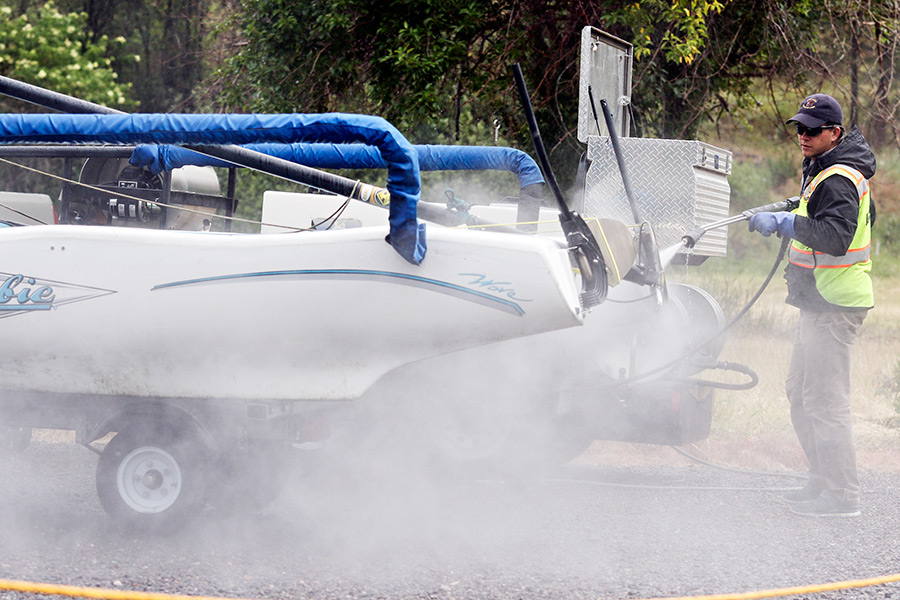The Flathead Lake Biological Station reported that more than 130 water samples from 30 locations on the lake came back negative for invasive mussels, researchers said Friday.
Following the November 2016 announcement of the first detections of invasive zebra or quagga mussels, the Flathead Lake Biological Station, the Confederated Salish and Kootenai Tribes and the Flathead Lakers immediately collected and analyzed more than 130 environmental DNA (eDNA) samples from across Flathead Lake. The results for all of the samples did not identify any traces of the aquatic invaders, the research facility’s staff announced Feb. 17.
However, lack of detection does not prove that the mussels have not arrived in the Flathead system, according to a news release from the station.
In addition to being analyzed at Professor Gordon Luikart’s Montana Conservation Genetics Lab on the University of Montana campus, the samples were also sent to an independent U.S. Geological Survey lab in Wisconsin with years of experience working on zebra and quagga mussels. The Wisconsin lab’s results are also all negative for mussels, confirming the results from Luikart’s lab, researchers stated.
So far, the traces of contamination are restricted to the Missouri River Basin, but the likelihood of mussels hitchhiking on the hulls of boats or in bilge water or cloistered away in irrigation equipment has risen to a fever pitch. The threat of mussel infestation hits especially close to home for those working to protect the waters of Flathead Lake and its surrounding network of rivers and creeks, and it comes to rest at the doorstep of the Columbia River Basin — the only major watershed in the West still believed to be free of quagga and zebra mussels.
An infestation of zebra or quagga mussels could spell the beginning of the end for Montana’s most pristine watersheds, holding the potential to topple underwater food webs that prop up the Treasure State’s prized aquatic species while wreaking untold havoc on its infrastructure and recreation economy.
